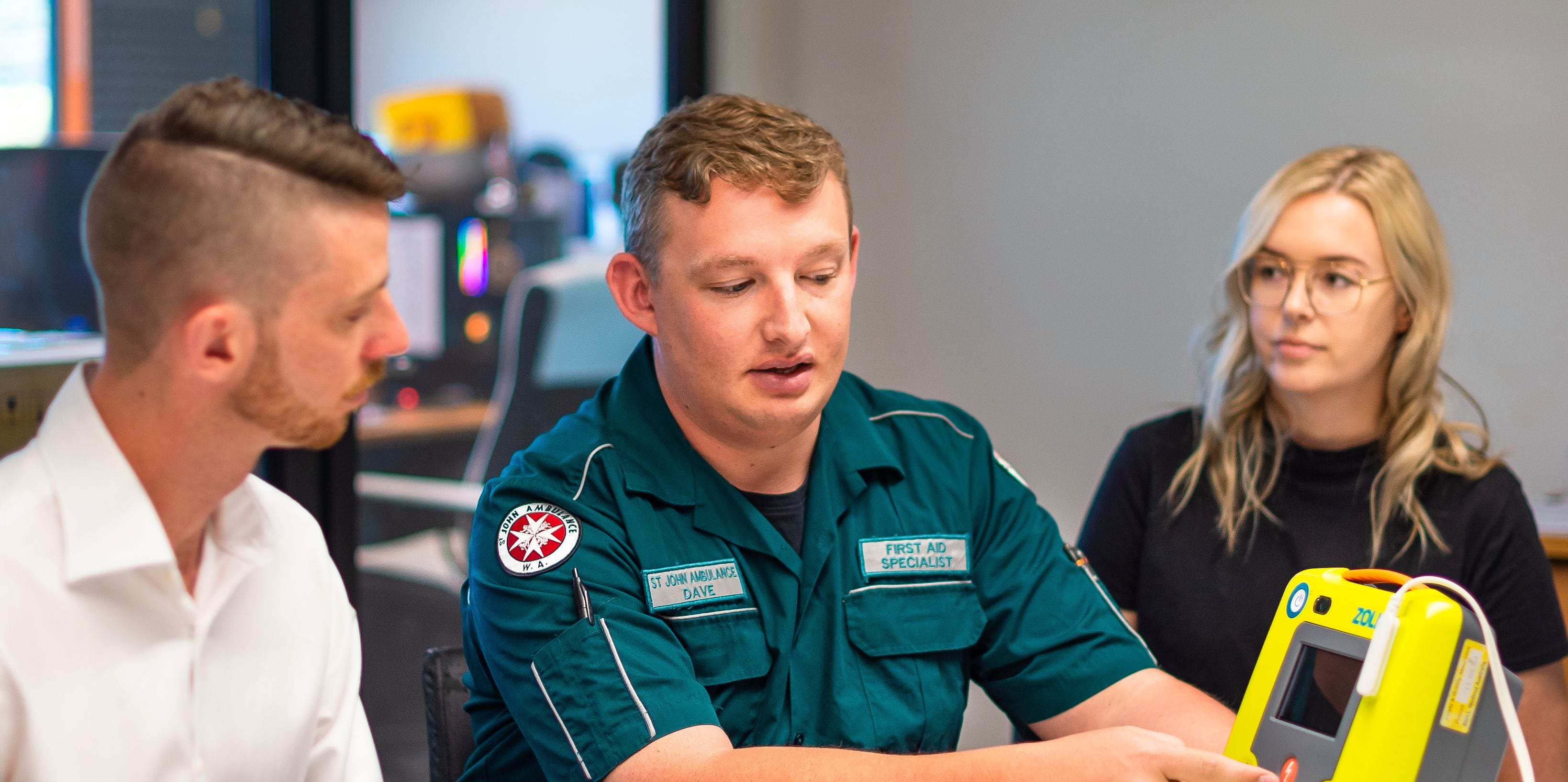About half of WA workers have witnessed a health emergency at work – but can’t say if a defib is on site
- Almost half of WA workers have witnessed a health emergency in the workplace, with almost three in 10 saying it has happened more than once.
- And about half of WA workers say their workplace does not have, or they don’t know if it has, an Automated Electronic Defibrillator (AED) on site which could potentially save a life.
- WA workplaces are better equipped to deal with emergencies than interstate counterparts, with almost 70 per cent of locals saying they have a designated first aid person at work, compared to less than half nationally.

Almost half of WA workers have witnessed a health emergency in the workplace – but cannot say if their workplace has an Automated Electronic Defibrillator on site, the new Resilient Workplaces survey from St John WA has revealed.
In good news, the fresh figures, released to coincide with World Day for Safety and Health at Work, show WA workplaces are better equipped to deal with emergencies than interstate counterparts. Almost 70 per cent of locals say they have a designated first aid person at work, compared to less than half nationally.
St John Chief Brand and Reputation Officer Aaron Crowther said AEDs were unequivocally associated with improved survival.
“These results show in WA we appreciate the value of first aid, but we need tools in the hands of those empowered to deliver it,” Mr Crowther said.
“For every minute that passes without receiving a resuscitation attempt in the form of CPR or an AED shock, a cardiac arrest patient’s chance of survival decreases by 10 per cent, with the first five minutes proving the most critical.”
St John has developed a network of more than 7000 registered AEDs over the past decade which can be deployed by the State Operations Centre in the event of a Triple Zero (000) call related to cardiac arrest.
Called the Community First Responder Network, the free service aims to get defibrillators to cardiac arrest victims in the vital minutes before an ambulance arrives. Locations of the registered defibrillators are also listed here and on the St John First Responder app.
The 2021 Out of Hospital Cardiac Arrest Report (OHCA), released last month, revealed bystander CPR and the use of defibrillators – both of which are major drivers for surviving OHCA – had increased. In cases where a community AED shock was deployed, the likelihood of survival for the patient more than doubled.
The Resilient Workplaces survey also showed:
- 69% of WA workers said there was a designated first aid person at their workplace, compared to 45% nationally.
- 47% of WA workers have witnessed a health emergency at their current workplace, with 28% saying it has happened more than once.
- 33% of WA workers don’t know if there is a designated first aid person at their workplace,
- Just 53% of workers are confident their workplace has an Automated Electronic Defibrillator on site.
Additional resources:
- See WA’s 7000 registered AEDs at https://defibrillator-locations.stjohnwa.com.au
- To register your workplace AED, visit https://stjohnwa.com.au/ambulance-and-health-services/community-first-responder.
